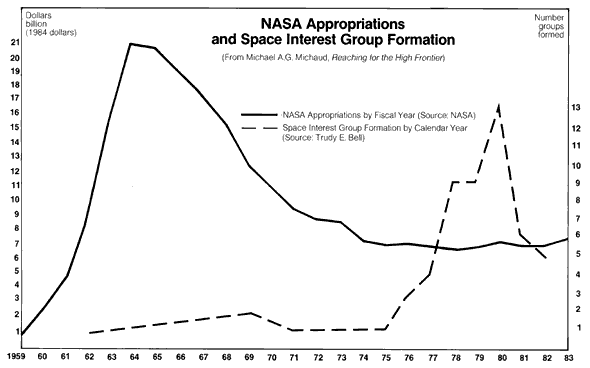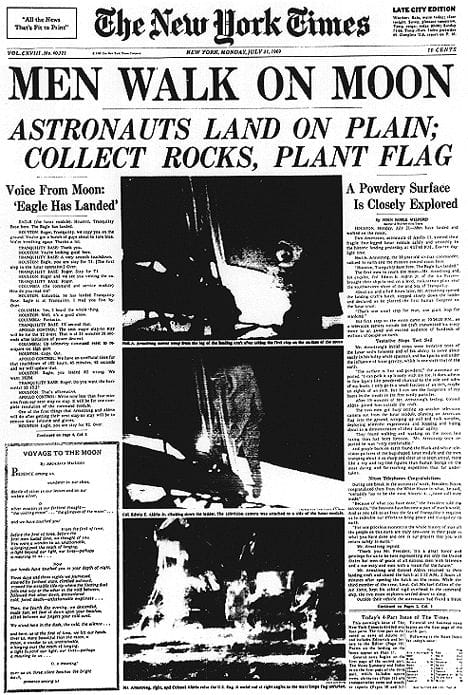Daniel Gildelamadrid is the Editor of The Societarian. He studies and writes on race, sociology, politics, and law.
During the Cold War, the international space race was dominated by the two competing superpowers at the time: the United States and the Soviet Union. Outer space exploration was public, concerned with scientific advancement and national prestige. In this new frontier, questions of who should be allowed to explore, and why, led to the formation of treaties and agreements such as the Outer Space Treaty (1967), Rescue Agreement (1968), Liability Convention (1972), Registration Convention (1976), and the Moon Agreement (1984).
According to the body of space law, particularly those drafted and established either as official documents or customary law, outer space is not the domain of one or two countries, but a sort of commons for all of humanity to enjoy, explore, and access. This idea of the space commons came with the suggestion that the domain of extra-atmospheric travel should be conferred upon all countries, not the few that had thus far engaged in the industry. In other words, the original architects of space law were principally concerned with the idea that when a state explores space, it should do so with the interests of all of humanity in mind.
In the first few decades of the space race, starting with the 1950s, NASA became a major player alongside the Soviet space program. While NASA was the cardinal and centralized institution for the United States, the Soviets had a more decentralized space apparatus with divided space programs. Both were state-owned. This government-owned or public-dominant model for space exploration was, for a time, the mode of the industry, but it is now considered “Old Space.”
Then, what is “New Space?” The NASA budget grew sharply between 1961 and 1962, and peaked around 1963, gradually decreasing until 1974, when the fiscal appropriations plateaued. During the 1970s, as NASA funding did not meaningfully rise or fall, private interest groups and explorers belonging to what is called the New Space or NewSpace movement experienced a significant expansion.

New Space as a movement contends the primacy of private space exploration over the space activities of states. It is characterized by private enterprises, emphasizing innovation and cost-effectiveness. In the United States, this looks like SpaceX and Blue Origin, which have accelerated a New Space race with billions in funding coming from government grants and contracts. The United States is funding private space exploration with billions that it could have given to NASA instead.
This sort of neoliberal logic of transferring public spending away from government institutions can be referred to as managed decline, where an institution (such as public housing) is intentionally rendered failed and obsolete through underfunding or policy changes, thereby consolidating its eventual elimination in favor of capitalist alternatives.
As the New Space movement picks up steam, with projects like Starlink aiming for global extra-atmospheric infrastructure construction, and as more and more fiscal expenditures make their way into the pockets of private space CEOs, NASA loses out on potential funding. Even the United Kingdom Space Agency (UKSA) has entered into agreements with private Axiom Space to advance private missions.
It is well established that national space programs like NASA and UKSA do the scientific research that private companies do not. When a space CEO invests in exploration and technology, the goal is profits, a return on investment. When the state pursues it, the goal is (per space law) to advance science and the interests of humanity globally.
Whereas the New Space is concerned with commercial competition and profits, a counter-movement would seek to restore governmental dominance and the principles of science and the space commons: the Space Society. In a Space Society, the exploration, infrastructure, research, and settlement of outer space are pursued for the collective benefit of humanity and science, not private profit.
To transgress space as an enterprise to call for the end of private exploration is to reaffirm outer space as the domain of the people. In fact, the Soviets opposed commercial space exploration, argued that the space industry should be state-owned, and that private enterprises should be excluded from international space law.
This attitude of state primacy over the market still exists in the United States. According to Pew Research, 65% of Americans report that they believe NASA should remain involved in space exploration, with 32% saying that sufficient progress will be made regardless of state involvement.

The issues posed by commercial space exploration include environmental concerns, space debris, limited oversight, and the consolidation of capitalist realism into space politics; there may come a point where NASA is considered obsolete, the capitalist mode of space exploration becomes without imaginable alternatives, and the pursuit of profits mitigates scientific research.
The Space Society, as a movement, should emphasize that (a) outer space is a global commons; (b) private space exploration should be limited or ceased; (c) public space institutions should be fully funded and equipped to produce the innovations that have come to characterize commercial enterprises; (d) space exploration should have democratic oversight; (e) the primary interest in extra-atmospheric activities should be the common good of humanity; and (f) the approach to infrastructure and technologies should be centered on sustainability and reasonable cost-effectiveness.
As the global public turns against the capitalist mode of production, we should be extending this critique to the space race and the New Space movement before neoliberal managed decline fully consumes our national space programs.
Reject the Space Business. Advocate for the Space Society.


